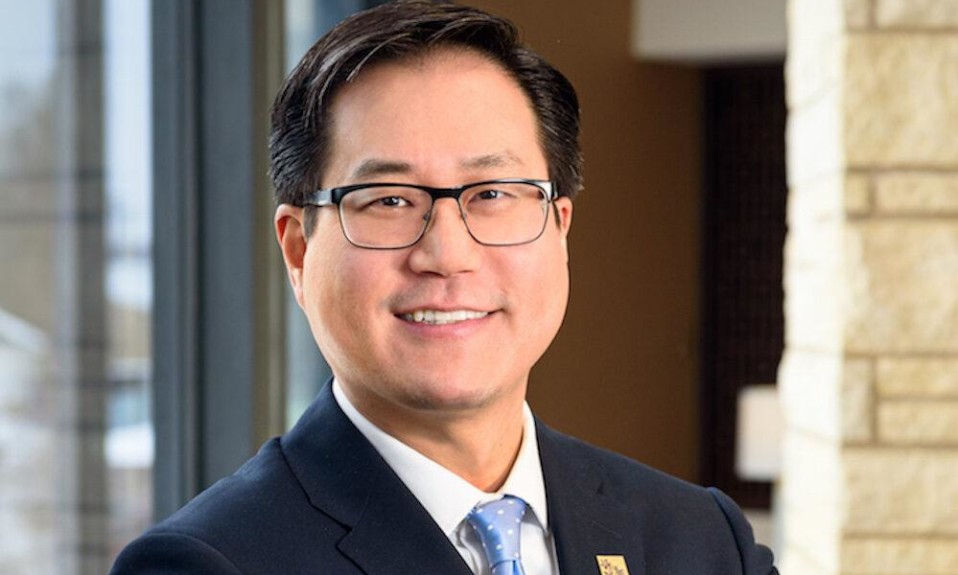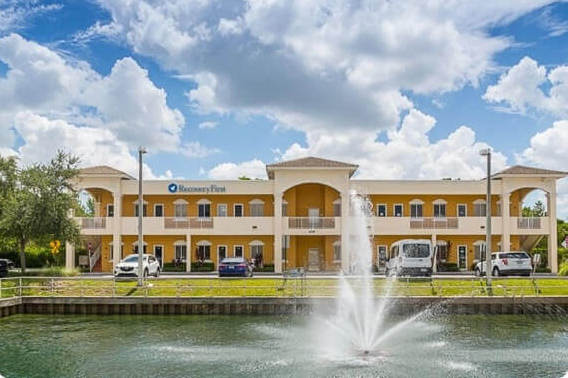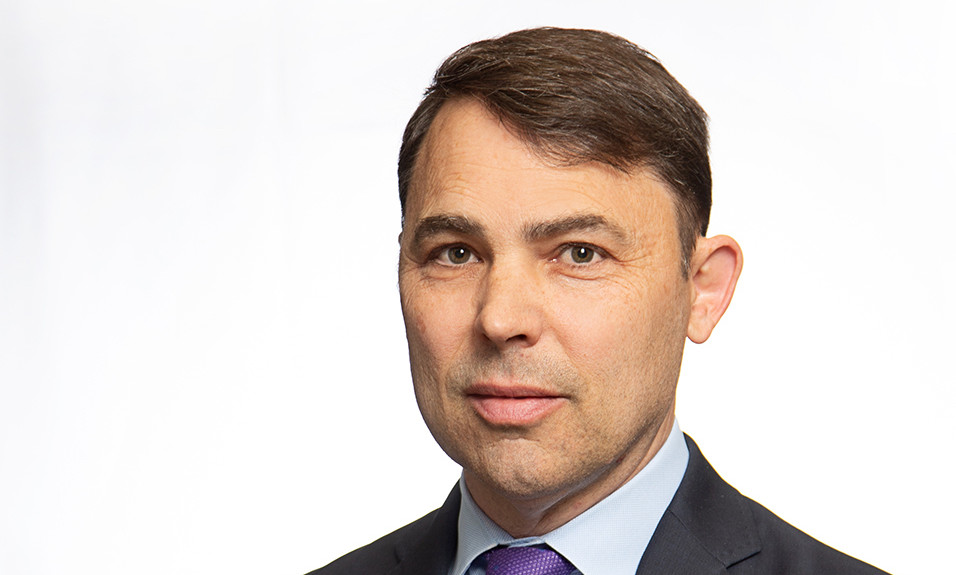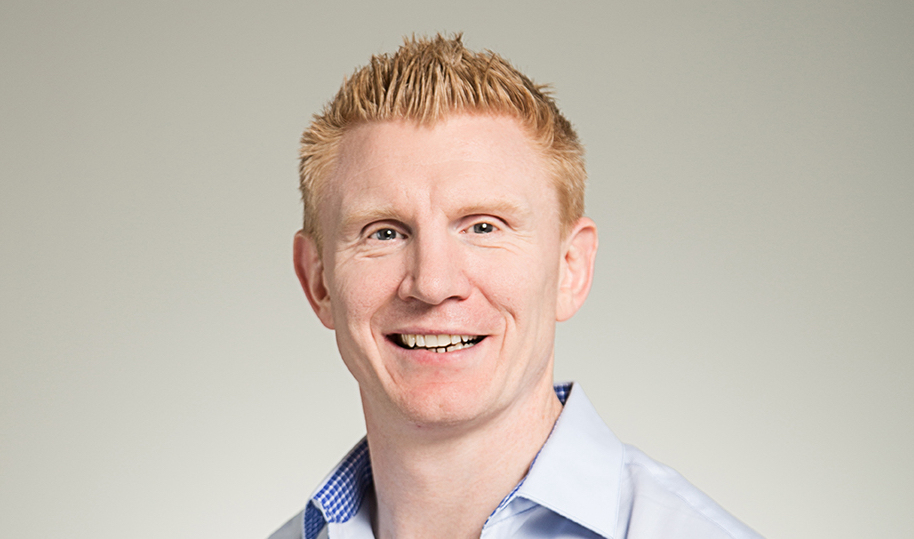In an exclusive interview with TreatmentMagazine.com, the foundation’s incoming leader discusses his unique credentials and the direction he thinks addiction care should go
By Jason Langendorf
March 1, 2021Joseph Lee, M.D., medical director of the Hazelden Betty Ford Foundation’s youth services arm for the past 11 years, was announced as the organization’s new president and CEO last week, effective June 28. A national expert on youth addiction and treatment and author of Recovering My Kid: Parenting Young Adults in Treatment and Beyond, Lee has championed the significance of culture, psychology and diversity in addiction care.
I hope and I think our employees will see…that the door is open and our banner is going to be broader, that we’re going to be more inclusive.”—Joseph Lee, incoming president and CEO, Hazelden Betty Ford Foundation
As part of our ongoing treatment leadership series, TreatmentMagazine.com spoke to Lee about his new role, the relevance of his background and influences and the future of the Minnesota-based foundation and addiction care in general. (This Q&A was lightly edited for clarity and brevity.)
Q: What was your introduction to the field of addiction treatment?
A: Well, I don’t have a personal story that would make for a good movie. But I think the key word is “humanism”—and that is believing people have the capacity for change within. That’s a spark that was lit when I was doing residency at Duke University. I would see these patients in the emergency room who were intoxicated. They were irritated and angry at you, and you saw that side of addiction. And then a couple months later, I saw them in their true form—who they really were—in treatment clinics. I saw them in recovery. And that change, that capacity for these people to be who they really were, just kind of blew me away. So as I went through residency and then did my child psychiatry fellowship, that always kind of stayed in my mind, because you don’t get to see that kind of change and gratification in medicine very often. I was floored by it.
Then I came to Hazelden Betty Ford to get my addiction certification. I didn’t grow up with a lot of means, and so one of my other classmates went to do another fellowship in addiction medicine, but I had to earn a living. We came to Minnesota, and I was able to get my addiction board certification here. And everything about that humanism was magnified working here. I saw it reinforced, saw the healing community, saw the science of it. And so, here I am.
Q: It’s uncanny how many people in the industry do have a personal connection, and often a first-person experience, with addition. To what do you attribute your focus on humanism? Do you consider yourself wired for empathy?
A: I wish I could say I was wired that way, but it’s not true. Empathy is a skill. It’s a skill you learn, and you get there by being humble and by listening. I was kind of a hot shot coming out of Johns Hopkins before coming here, and the families here—the kids I worked with, the patients I worked with, seeing the mission—taught me humility. I learned empathy, and I learned the power of grace—in my own way, without that personal story. I now very much understand the journey of recovery and how people heal together. It’s been incredible. But, no, I don’t have an awesome story to tell.

Q: But your personal story is important. You are the son of South Korean immigrants, and in June you’ll become Hazelden’s first non-white president and CEO.
A: My dad was a chemical engineer. He has since passed. My mother was an art professor. We first came to Oklahoma to continue my father’s studies in chemical engineering, and so I grew up in Oklahoma. That’s where I was for all my formative years. I’m an Oklahoma Sooner, and went to college and medical school there as well. My parents were immigrants. They sacrificed a lot for me. My mom sacrificed a career, going to work as a housekeeper to really make my dreams possible. And the dovetailing of all that is being an Asian American. The impact of history and legacy is not lost on me. This is a bigger story than me—a much bigger story than us. And so there’s this intersection where I’m able to honor and appreciate my personal history, but I’m also able to honor the legacy of this great organization. People like First Lady Betty Ford, all the people who have pioneered and championed for the rights of people with addictions for decades. It’s kind of landing for me now, and it’s just a great honor to have this opportunity.
Q: So what is the significance of your promotion to Hazelden’s top rung of leadership in terms of representation in the industry?
A: If you benchmark it, I think only about 10 percent of hospital CEOs are physicians—and I would guess that in our industry it is far less than that. I would also go as far as to say there’s probably not the kind of infrastructure to even increase that number right away without some investment. But I think there are a lot of things that my becoming CEO symbolically represents. I hope and I think our employees will see in it the opportunity—that the door is open and our banner is going to be broader, that we’re going to be more inclusive.
Innovation isn’t so much about being a mad scientist. You listen to people, listen to what they need. It’s not rocket science. You do your best to meet those needs for those individuals and those families. The secret sauce is not complicated.”—Joseph Lee
But we humbly accept that, like the rest of America, advocacy was for a narrow demographic. In keeping with that legacy and appreciating that history, we’re going to do more to broaden the banner, dive in deeper to diversity, equity and inclusion. It’s something I’m deeply, deeply committed to. In fact, the very first meeting I had once I was officially announced as CEO was with our Diversity, Equity and Inclusion committee. That’s how much it means to me.
Q: In addition to being an Asian American, you’re also Hazelden’s first physician to be named president and CEO. How does that fit into your new role, and what’s its significance?
A: I think what the board and the organization is saying is, the door is wide open for us to really become an even greater mainstream healthcare player—and that’s for all kinds of ethical standards, quality standards. That’s what the people deserve. That’s what people want when they come to us. I hope having a physician CEO lends to those kinds of voices, because that’s the direction we are committed to going: providing excellent clinical care with excellent clinical standards. That’s what we’re going to continue to aspire to.
Q: The pandemic has taken a toll on everyone. Has Hazelden reacted to those stresses and put systems in place for its own employees?
A: Yeah. In fact, during the pandemic we recognized that we needed to double down on staff safety and staff wellbeing before anything else. So we committed to hanging on to as many employees as possible—we hung on to all of our frontline clinical staff. We did a lot of checking in with them. We didn’t give them any mandates like, “Hey, this is your job and you signed up for it,” like maybe some hospitals you’ve heard about in the news. We really invested in the mass of them.
What I found inspiring in all that is they were incredibly courageous. I was on our front lines. It’s not the ICU—you know, we’re not intubating people—so I want to be humble about that. But we didn’t have testing at first, we didn’t have masks. We have all the state-of-the-art stuff now, and our policies are great and we’re very safe. But it wasn’t that way in the beginning. And I’ve got to say that it was just incredibly historic and uplifting to be there with our nurses, our counselors, our grounds crew, our cleaning staff. The investment we made in prioritizing them and their importance to our organization really paid off. I’m so proud of our organization for that. It was really, I think, a test of character that we passed.

Q: Hazelden has been a standard-bearer over the years, but the field is always changing. What would you like to add, advance or see changed as the organization’s incoming president?
A: Well, I hope you’re going to see lots of advances. Our tradition and our base are solid. The people who back us—our donors, our board, our alumni, other people in recovery—are our strength. And what they want is, especially through COVID, for us to be more creative. They want us to be more innovative. They want us to broaden the banner. They want us to uplift other voices. They want us to meet people where they’re at. And what I mean by that is not figurative, as a psychological state of mind, but quite literally where they’re at. Our virtual services were just the start of that. But we’ve got a lot more creativity and a lot of other projects downstream to multiply that.
It’s a real credit to our organization and [outgoing president and CEO] Mark Mishek that he’s built the foundation in such a way that we can take advantage of this moment. We feel very blessed to be a part of the solution. We certainly cannot do it alone. We’re going to need a lot of partners, but if we do that, I’m hopeful.
Q: Broadly speaking, how can the addiction treatment industry help improve outcomes?
A: I can’t really comment on the industry as a whole. But people—all organizations—need to be courageous and humble enough to learn to evolve. Change is constant. It’s not something that happens suddenly. It’s a constant thing, and people’s needs change with time. COVID has proven that. I think people in the industry would be wise to see that. We’re investing in a lot of different directions. Our virtual services are now going to address mental health concerns, so we’re broadening that arm. Our family services are going to be a huge part of our ecosystem moving forward. You just have to really listen. I mean, innovation isn’t so much about being a mad scientist. You listen to people, listen to what they need. It’s not rocket science. You do your best to meet those needs for those individuals and those families. The secret sauce is not complicated.
Q: The approach to addiction treatment has been fairly rigid in the past—and still is in some circles. It sounds like you’re saying the industry needs to stay open-minded and attentive in assessing what’s affecting people with addictions.
In any healthcare industry, care needs to change. You always have to be willing to be creative and look around. But the beautiful thing about our organization is we have a timeless foundation—AA, 12-step facilitation—that’s very science-based. These things are just solid foundations to build off of. So we have this unique advantage in that we not only understand and cultivate the community that gets the spirit of recovery, but we also continue to evolve based on that and give new offerings to people that are scientific.
I hope you’re going to see lots of advances [at Hazelden]. Our tradition and our base are solid. The people who back us—our donors, our board, our alumni, other people in recovery—are our strength.”—Joseph Lee
Q: We’ve seen a lot of recent legislative change and movement toward a more compassionate and effective drug and addiction policy. If you were a policymaker, what would be the first thing in the industry you would like to see addressed?
A: At some point, stigma bares its form in terms of resources and prioritization, fundamentally. Things that open up resources and access for people—resources that get more talent and creativity and partnerships into the industry—are critical. There are some immediate things that are needed, and we’ve been very supportive of Minnesota Senator Amy Klobuchar and other people, in a bipartisan way, who have tried to uplift and provide help for mental health and people who are struggling with addiction issues. There are immediate health issues that need addressing because of COVID and the people who fall into the cracks, but in the long run we’ve got to take a look at our infrastructure and see how we can do this better.
Q: What is your top treatment takeaway—the last thought you’d like to leave us with on addiction treatment?
A: One is the pandemic’s not over. There are a lot of people who need help through the pandemic. We’ve still got to get out of it, and we have to help people maintain access through it. In the near term, there’s a lot of work to do. After that, we should think about the silver linings that have come from the pandemic: some loosening of regulations for virtual care services, partnership opportunities that arise. I think we seize those opportunities next.
And then we’re going to need to broaden our banner. We’re going to learn as much as possible about not just our employees but also our partners, supporters, donors. Because in the long run, if we’re going to do something, we’re going to have to do it together. We’re going to be a bridge builder, and we’re going to be a part of the solution moving forward.














